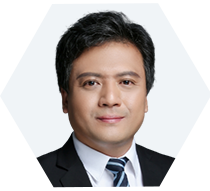

Prof. Jinting Wang
Central University of Finance and Economics
Speech Title: Reliability Analysis and Optimal Control of Stochastic Service Systems
Abstract: The rapid advancement of modern information technology creates significant challenges for service systems, including customer behavior uncertainty, dynamic service resource allocation, optimal pricing strategies, etc. Service interruptions and failures, particularly those caused by human-computer interaction, have resulted in severe consequences. This presentation centers on reliability analysis and optimal control of queueing systems, with applications spanning manufacturing, wireless communications, and related domains. Following a survey of reliability studies on queueing systems with diverse structural features, we address critical research challenges including resource allocation optimization and adaptive control strategies based on customer behavior in IoT and Unmanned Aerial Vehicle (UAV) Networks, along with other recent advances in this domain.
Bio: Jinting Wang is the Longma Distinguished Professor and Director of the Academic Committee at the Department of Management Sciences, School of Management Science and Engineering (SMSE), Central University of Finance and Economics, Beijing, China. His research interests focus on Stochastic Operations Research and Operations Management, including queueing theory, reliability, inventory control and the applications of game theory and queueing theory in operations management, industrial engineering, service science, queueing economics, and wireless communication & networking.
He has published over 160 peer-reviewed articles in international journals including Operations Research, Manufacturing & Service Operations Management, Production and Operations Management, IEEE Transactions on Reliability, IEEE Transactions on Vehicular Technology, IEEE Transactions on Cognitive Communications and Networking, IEEE Transactions on Systems, Man and Cybernetics: Systems, IEEE Transactions on Services Computing, Queueing Systems, Naval Research Logistics, European Journal of Operational Research, Journal of Multivariate Analysis, etc. He has published five monographs including a recently published monograph entitled “Fundamentals of Queueing-Game models” (Springer & Science Press). So far, he has hosted nine general projects of the National Natural Science Foundation of China (PI) and over 20 other scientific research projects in the area of Operations Research and Management Science. He is currently serving as an Associate Editor for several professional journals, such as Journal of the Operational Research Society, International Journal of Operations Research, International Journal of Smart Grid and Green Communications, and other three Chinese journals.
Jinting Wang is a life member of Operations Research Society of China (ORSC), and was the recipient of the Outstanding Research Award for Young Researchers from ORSC in 2004. In 2011, he was honored with the recipient of Program for New Century Excellent Talents in University by the Ministry of Education (MoE) of China. He was also the recipient of the “Zhan Tian You” Railway Science and Technology Award (Outstanding Award of Science and Technology) in 2018. In 2024, he was awarded ORSC Science and Technology Award (Distinguished Research Award of Operations Research) by the Operations Research Society of China due to his contributions in Stochastic Operations Research.
TBA
TBA
TBA